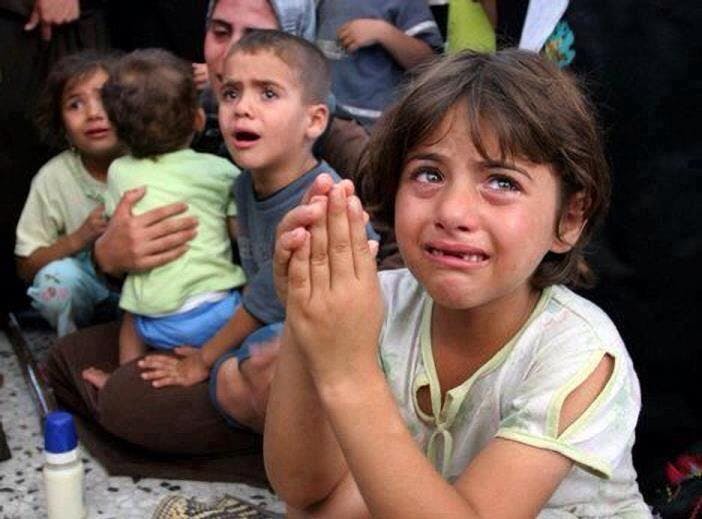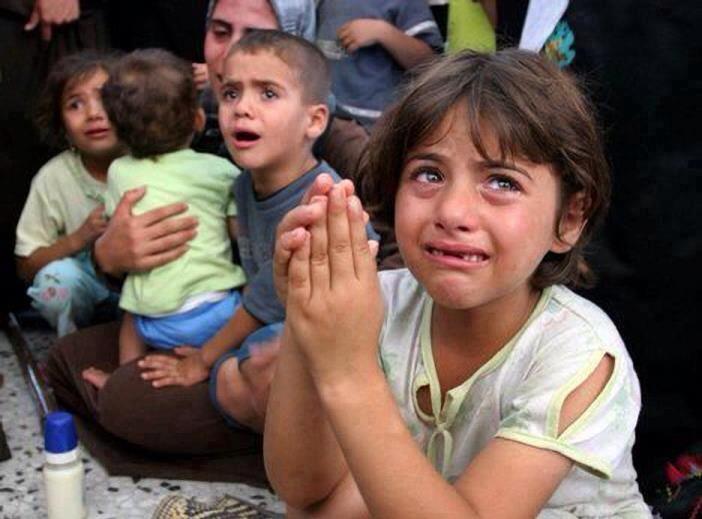The Human Cost of War
Jan 21, 2015
Story


The images of the crying children on a war-front haunt me to no end. The rhetoric that is being shamelessly spilled in support of the wrongdoing is angering me to no extent.
I feel guilty each time I eat, or lie down to rest.
I feel guilty when I am able to go out on my own without having to fear a bomb going off in my face.
I feel evil when I read such painful news in the paper, and then put the paper aside and head to work.
I feel terribly, terribly guilty when I want something, and actually get it.
I feel stupid that I cry for a lost opportunity, or for not getting something I wanted.
I feel like my life is a derisive mockery of reality when I feel sad for Robin Scherbotsky never being able to have a child, or that the Harry Potter series is over, or that books like 50 Shades of Gray actually go into print.
Why?
Because I can do these things without fearing war, or living under a constant threat to my very existence. Because I can do these things while so many cannot, because of the crippling effect of war. And while I can and do these things, families in the Congo, in Mali, in Gaza, in Syria and in so many other places count minutes off their fingers as the clock is ticking on their lives.
Why do we wage war? Why do we go to any lengths to justify the propriety of the war we wage? Why is war so inherent in our daily being? Why are we so quick to launch missiles and spray bullets when there is a peaceful way instead?
Waging war is not the choice of a people. Common man may hate, but he does not detest. Common man may curse, but he does not deliver harm. It is the ugly weft of politics and corporation-driven economics - a heady mix – that plays the filthy catalyst that keeps war going, because it is good for business. This is then translated into jingoistic campaigning, where people are taught to live in fear. We must wage war, or the terrorists will kill us all. We must fight now otherwise history will repeat itself. We must fight, we must kill. Otherwise, we will be killed.
Sounds familiar? You bet. The world is a huge jigsaw puzzle: each piece representing a people forced to live in fear. No piece wants to fit in. No peace is trusting of the other. Fear drives the wedge further. Fear turns into intolerance. Because fear drives judgment, judgment drives intolerance, and intolerance drives hatred.
And inside each piece in the puzzle, are some people who have been educated enough to know that this is all a foolish attempt of the years of myopic leadership. But they cannot act, for if they do, they are silenced. But they are left only to wonder in the solitary confines of their mind, in pieces of paper and little rooms in cyberspace. How can people sleep at nights knowing that children cry for food, for safety, while their parents have been killed? How can people run normal lives knowing that women face the threat of rape and sexual violence and live in fear of the complete erosion of their existence? How is a world leader walking his walk without compunction when he sanctions war?
While all this happens, little children cry on the streets. Women lie in hospital beds. Men fight though they are wounded to the bone.
It isn’t their fault they fight. They are victims of the same fear that the rest of society is, and are taught a foolish perversion of patriotism: that fighting on the boundaries of their country, obliterating the face of their enemy, killing, raping and wounding the women and children of their enemy is the service they should do to their country. But as they shoot, they don’t shoot the enemy. They shoot, kill, maim, rape and wound another person like them.
And that misery is the Human Cost of War.
What does it matter if you are Hutu or Tutsi, Arab or Jewish, Congolese or Rwandan, Indian or Pakistani, Chinese or Japanese, Shiite or Sunni? What does it matter what language you speak, what god you worship, what prayers you chant, or what food you eat? The same red blood flows. The same white bones prop the body. The same eyes look back. The same nose breathes in air. The same tongue gasps in pain.
What does it matter, really?




